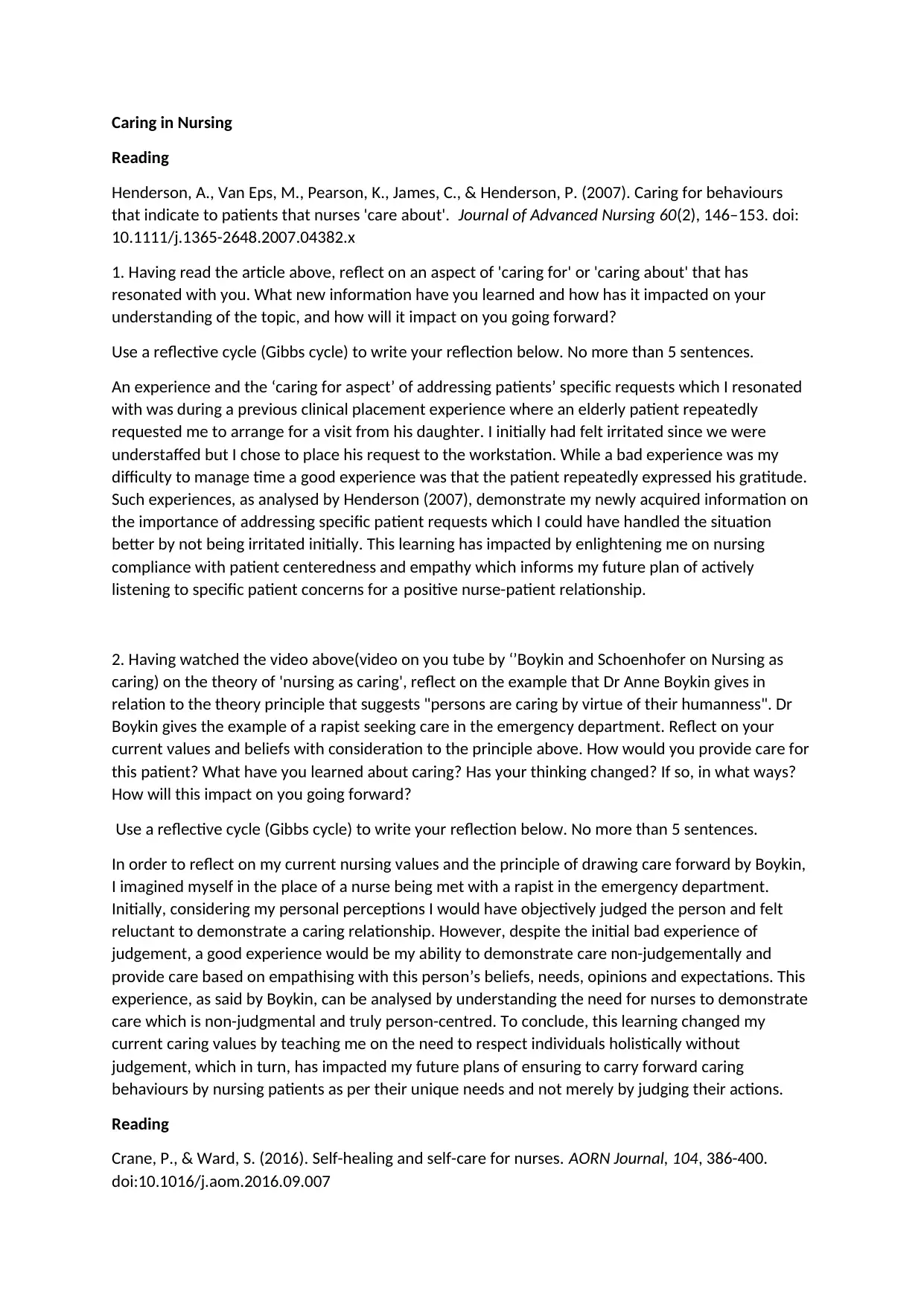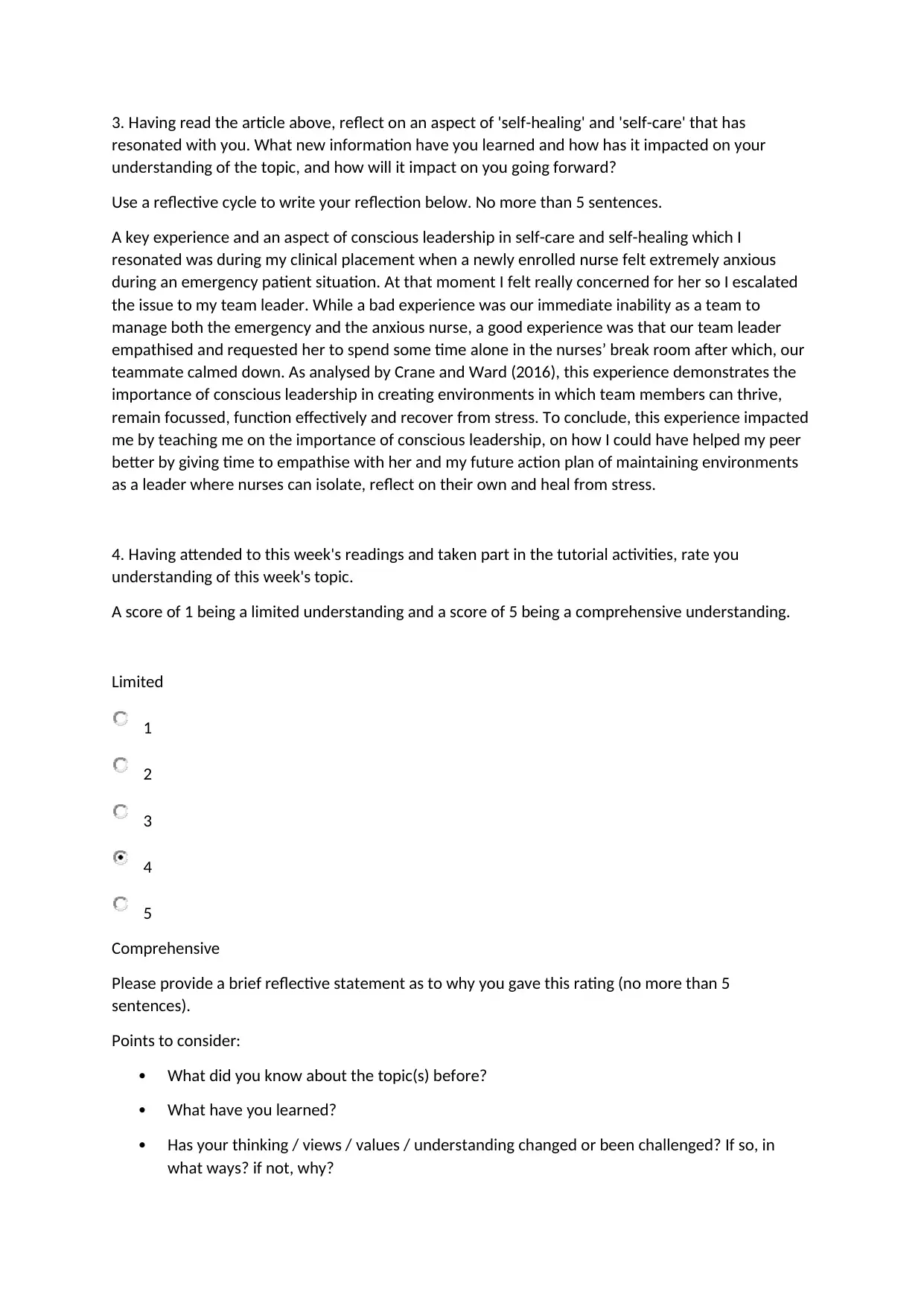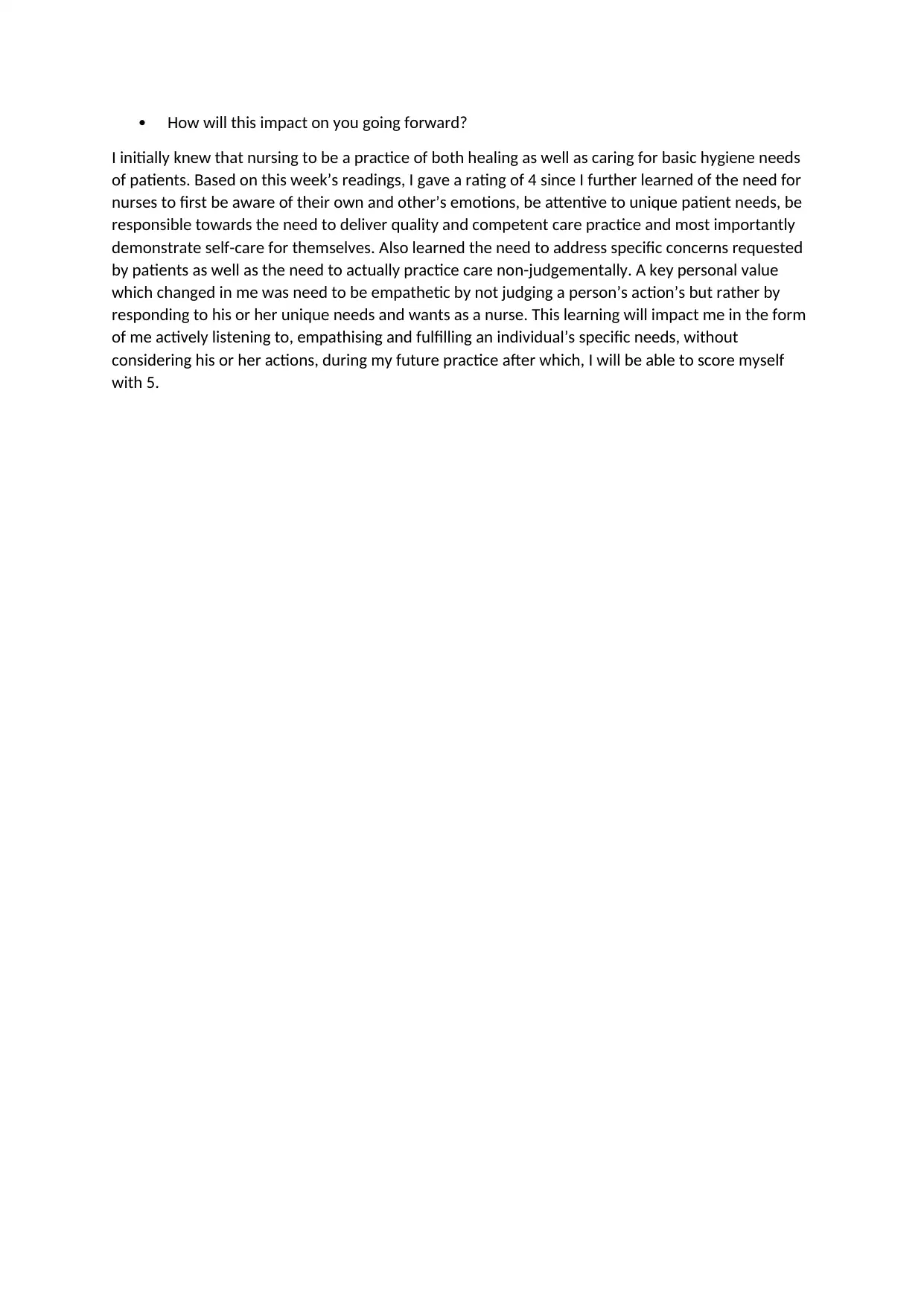Caring in Nursing: Exploring Theories, Practices, and Personal Values
VerifiedAdded on 2022/09/18
|3
|1237
|23
Homework Assignment
AI Summary
This assignment presents a reflective analysis of the concept of caring within the nursing profession. The student engages with three articles and a video, exploring different facets of care. The first reflection centers on the importance of addressing specific patient requests and the impact of empathy in nursing. The second reflection delves into the theory of 'nursing as caring,' using Dr. Anne Boykin's example of providing care to a rapist in an emergency department, prompting a self-assessment of the student's values and beliefs. The third reflection examines self-healing and self-care for nurses, emphasizing the role of conscious leadership in creating supportive environments. The assignment concludes with a self-assessment of the student's understanding of the week's topics, reflecting on the evolution of their knowledge and values regarding patient-centered care and empathy. The student highlights the importance of non-judgmental care and active listening to patient concerns. This assignment demonstrates an understanding of reflective practice, nursing theories, and the practical application of caring principles within a clinical setting.
1 out of 3









![[object Object]](/_next/static/media/star-bottom.7253800d.svg)